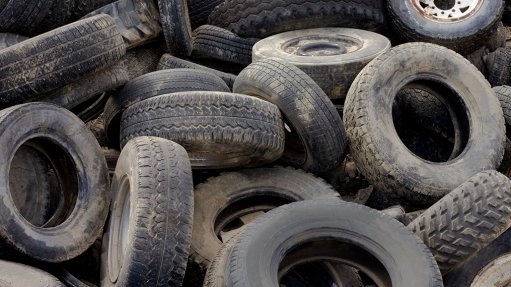100 years from now
When the Trojans found a horse on the beach, I am quite sure that the first thing they thought was not: “How kind of those Greek lads”, but rather: “Whatever are they up to?”
We have similar horse. Ever friendly and kind Google lets us use Google Earth without charge. We even get a street view of our house. We have a massive online encyclopaedic data access system. All free! So kind, is it not? You have to ask yourself: Why is Google so keen on knowing my location? Just about every app you try to download comes to a shuddering halt with the message: “Cellphone location must be activated to use this app”, or: “Cookies must be enabled to proceed.”
Why, one asks. Why, when I am trying to download a play-for-free version of Five Card Draw Poker, does Google want to know where I am, to track my whereabouts and my habits? Who wants this information? I have this theory: The US authorities know that, 100 years ago, much of the US was undeveloped. People trekked from one place to another looking for a nice place to stay and perhaps become characters in a novel by John Steinbeck. Even more, 100 years ago, there were no vinyl records and electronic gear, and sound level meters had to be trucked around in the back of a car.
The US authorities know and can predict that, with illegal immigration and other immigration and the current US birth rate of 1.87 children per woman, they will have a lot of people to house in 100 years’ time. One could, of course, use the surplus to populate Mars and, certainly, there will be volunteers, but this number will be way too few and probably dwindle to a trickle when they realise that Facebook signals will take 14 minutes to get there and 14 minutes to get back, making a whole day of a simple conversation. Further, given the landscape, growing dagga will be difficult and, boy, with no weed or Facebook, what can a body do?
Given the population growth, the US will encourage population stability by encouraging emigration to other parts, subsidised very heavily (just borrow another trillion from China).
The question is: Where do you send the emigrants and how do you make them want to go?
Immediately, we can see that a number of countries are not suitable for emigration: Libya, Syria, Afghanistan, Somalia, Sierra Leone, etcetera, will only suit those who wish to play recreational live war games. There is no space (or there will be no space) in Europe generally or the UK in particular. No US citizen after 50 tears of US propaganda will dream of living in China or Russia, Belarus, and so on. Australia is a possibility, but the Aussies can be fairly strict on immigrants.
The answer, my friends, is to send emigrants in 100 years’ time to South Africa. We can easily absorb another 55-million people. We have a relatively well-run infrastructure, with water and electricity that work most of the time, suitably bribable government officials, who will arrange for the US emigrant to bring his M60 belt-fed machine gun and grenade collection and the finest dope in the world. Sandy beaches, sunny skies and Chevrolet.
All good. This is a good place for the US emigrants to come to. The problem is making them want to go. Every person is attached to the land of their birth and does not really want to go away. The US has to ask for volunteers. And, my friends, this is where Google comes in. By tracking your cookies and location, they can easily determine how stable you are and where you live and how much longer you are expected to live. So, the US will give potential immigrants access to Google street views of various South African houses and let them know, if they immigrate, that a specific home, a property, can be reserved for that immigrant. You do not agree? Well, I do not think the Trojans suspected the contents of the horse. Prove me wrong.
Article Enquiry
Email Article
Save Article
Feedback
To advertise email advertising@creamermedia.co.za or click here
Comments
Press Office
Announcements
What's On
Subscribe to improve your user experience...
Option 1 (equivalent of R125 a month):
Receive a weekly copy of Creamer Media's Engineering News & Mining Weekly magazine
(print copy for those in South Africa and e-magazine for those outside of South Africa)
Receive daily email newsletters
Access to full search results
Access archive of magazine back copies
Access to Projects in Progress
Access to ONE Research Report of your choice in PDF format
Option 2 (equivalent of R375 a month):
All benefits from Option 1
PLUS
Access to Creamer Media's Research Channel Africa for ALL Research Reports, in PDF format, on various industrial and mining sectors
including Electricity; Water; Energy Transition; Hydrogen; Roads, Rail and Ports; Coal; Gold; Platinum; Battery Metals; etc.
Already a subscriber?
Forgotten your password?
Receive weekly copy of Creamer Media's Engineering News & Mining Weekly magazine (print copy for those in South Africa and e-magazine for those outside of South Africa)
➕
Recieve daily email newsletters
➕
Access to full search results
➕
Access archive of magazine back copies
➕
Access to Projects in Progress
➕
Access to ONE Research Report of your choice in PDF format
RESEARCH CHANNEL AFRICA
R4500 (equivalent of R375 a month)
SUBSCRIBEAll benefits from Option 1
➕
Access to Creamer Media's Research Channel Africa for ALL Research Reports on various industrial and mining sectors, in PDF format, including on:
Electricity
➕
Water
➕
Energy Transition
➕
Hydrogen
➕
Roads, Rail and Ports
➕
Coal
➕
Gold
➕
Platinum
➕
Battery Metals
➕
etc.
Receive all benefits from Option 1 or Option 2 delivered to numerous people at your company
➕
Multiple User names and Passwords for simultaneous log-ins
➕
Intranet integration access to all in your organisation


















